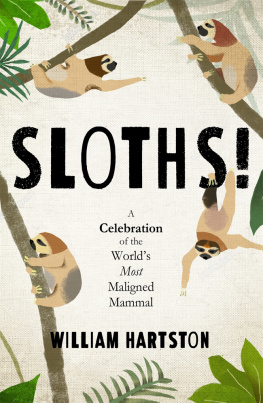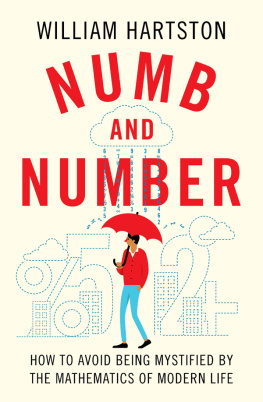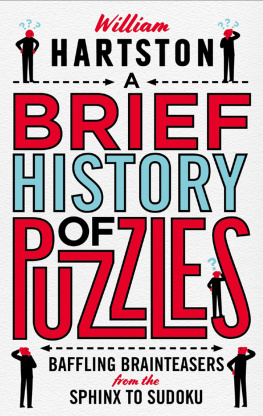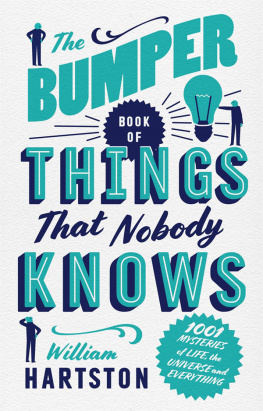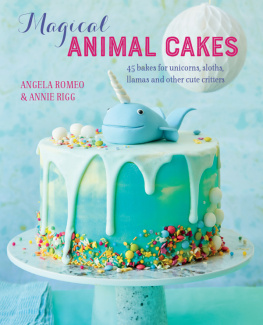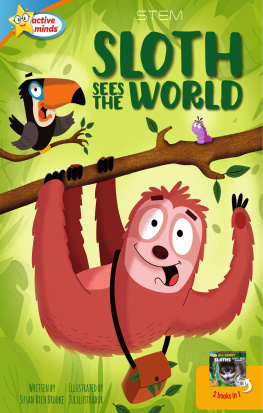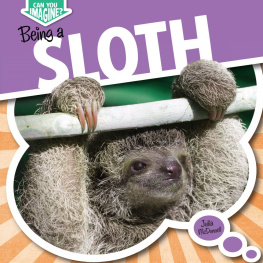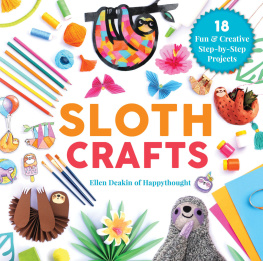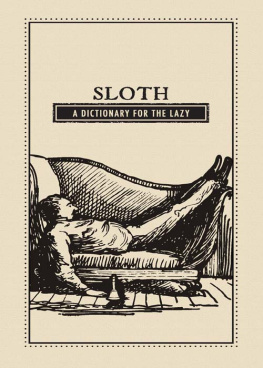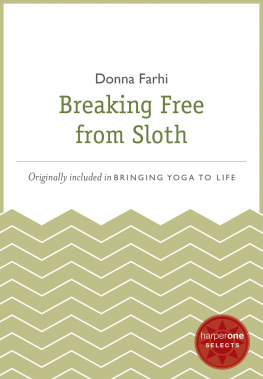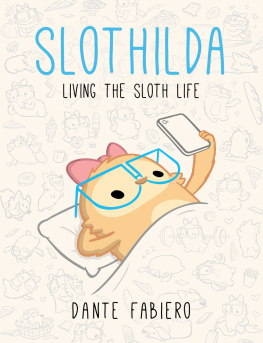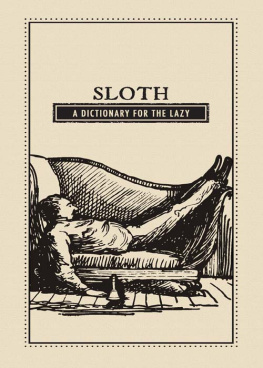Also by William Hartston
How to Cheat at Chess
The Penguin Book of Chess Openings
Soft Pawn
The Ultimate Irrelevant Encyclopedia
The Kings of Chess
Chess The Making of the Musical
The Drunken Goldfish and Other Irrelevant Scientific Research
How was it for you, Professor?
The Guinness Book of Chess Grandmasters
Teach Yourself Chess
Teach Yourself Better Chess
The Book of Numbers: The Ultimate Compendium
of Facts About Figures
Mr Hartstons Most Excellent Encyclopedia of Useless Information
Forgotten Treasures: A Collection of Well-Loved Poetry (Vols 1, 2 and 3)
The Things That Nobody Knows
Even More Things That Nobody Knows
The Bumper Book of Things That Nobody Knows

First published in hardback in Great Britain in 2018 by Atlantic Books,
an imprint of Atlantic Books Ltd.
Copyright William Hartston, 2018
Foreword copyright Lucy Cooke, 2018
The moral right of William Hartston to be identified as the author of this work has been asserted by him in accordance with the Copyright, Designs and Patents Act of 1988.
All rights reserved. No part of this publication may be reproduced, stored in a retrieval system, or transmitted in any form or by any means, electronic, mechanical, photocopying, recording, or otherwise, without the prior permission of both the copyright owner and the above publisher of this book.
1 2 3 4 5 6 7 8 9
A CIP catalogue record for this book is available from the British Library.
Hardback ISBN: 978-1-78649-422-1
E-book ISBN: 978-1-78649-424-5
Printed in Great Britain
Atlantic Books
An Imprint of Atlantic Books Ltd
Ormond House
2627 Boswell Street
London
WC1N 3JZ
www.atlantic-books.co.uk
Im more than half in love
with easeful sloth.
Christopher Hampton, The Philanthropist

Contents
Illustrations
Note
Before we start, we have to settle one contentious matter: how should the word sloth be pronounced? In his delightful book Word Watching, the Australian philologist Julian Burnside devotes one of his essays to the Deadly Sins, and mentions that Sloth is less frequently mentioned than the other six. This, he suggests, might be due in part to ambivalence about its pronunciation: does it rhyme with both or moth? OED2 rhymes it with only one, namely both. (I would never have imagined that sentence possible.)
Actually, the Oxford English Dictionary only applies that stricture to British English: it lets the Americans pronounce it either way.
I doubt that sloths are bothered about it at all.
FOREWORD
Sloths are one of the planets most misunderstood creatures. Saddled with a name that speaks of sin and ridiculed for centuries owing to their lethargic lifestyle. For too long we humans busy, bi-pedal apes intent on moving faster than Nature intended have idolized animals like the cheetah. But I believe we have much to learn from the sloth and its energy saving ways, which is why I founded the Sloth Appreciation Society. With the planet in crisis thanks to our unsustainable speedy lives, it is time for us to welcome the dawn of a new era: the age of sloth. So slow down, put your feet up and read all about why the sloth is the true king of the jungle (napping between chapters is not only permitted but wholeheartedly endorsed).
Lucy Cooke
Founder, Sloth Appreciation Society
www.slothville.com
INTRODUCTION
My passion for sloths began with a YouTube video. It was one of several filmed at the Sloth Orphanage in Costa Rica, and gave me, for the first time, a close-up look at these adorable creatures. One could hardly imagine anything better designed to capture the affections. Their obvious vulnerability, apparently trusting nature, and mouth set in a permanent smile is irresistible.
Over the next few days and weeks, I ogled as many sloth videos as I could find, and my interest in these strange animals grew, but I still knew very little about them. They hung upside down, they slept a lot, and that was about it. Then, by chance, I happened to meet a zoologist. I have forgotten why I met him or what we were meant to be talking about, but I quickly came to the point and asked him what he knew about sloths. And, joy of joys, he knew a great deal.
I then explained that I was asking because I and many others had been captivated by the videos from the Costa Rica orphanage and I thought that sloths were going to be the next designer pet.
I very much hope not, the zoologist said.
Why not? I asked. Theyre adorable.
Baby sloths are indeed very appealing, he said, but when they grow up, they can be the most vicious animals known to mankind.
I was astonished and asked for more details.
The sloth, he told me, is very vulnerable to predators when it comes down its tree and reaches ground level. It is well designed for hanging upside down and even scampering around in rainforest canopies, but at ground level its only means of locomotion is to drag itself along with its arms. This is not an effective way to run away from predators.
Sloths have therefore evolved another means of defending themselves: they have very long, sharp claws which they can use to swipe animals that threaten them. I have seen, the zoologist told me, a photo of the body of a jaguar which had been disembowelled by a sloth.
Pausing a moment to sympathize with the offspring of the jaguar, which I felt must have been traumatized when their mother told them that Daddy had been killed by a sloth such news can leave a young jaguar needing therapy for years I rapidly changed my opinion of sloths and my admiration and respect for these creatures grew still higher. They hang upside down in the rainforest canopies of Central and South America eating the leaves around them; they only shift position when the food runs out or to come down the tree once a week to poo and pee; and they disembowel anything that irritates them. That, I felt, is the perfect lifestyle.
I resolved to find out everything I could about sloths, and the more I found out, the more I became impressed and entranced. This book is the result. Designed to satisfy the needs of sloth-lovers who want to know more about these fascinating creatures, I hope it will also recruit more people to the sloths ever-growing band of admirers.

| William Hartston
Cambridge, 2018 |

Nothing irritates me more than chronic laziness in others. Mind you, its only mental sloth I object to.
Physical sloth can be heavenly.
Elizabeth Hurley
I blame the Portuguese.
The word sloth has been in the English language meaning slowness since the twelfth century at least. Formed in much the same way as width, meaning wideness, and often spelt slowth or sloath, it was not used to refer to a particular animal until the mid-fifteenth century when, for reasons that are very unclear, it became used as a collective noun for bears. Sleuth was also used by some writers for a company of bears, but as there is no explanation for either a sleuth or sloth of bears, it is unclear which came first or whether one was an error for the other.

